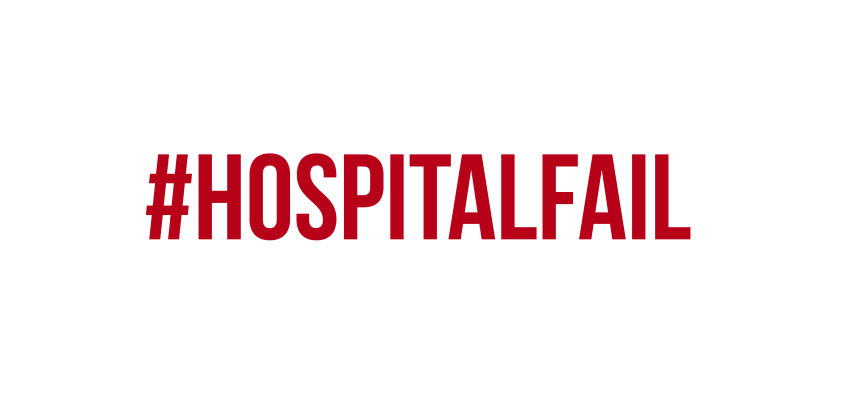More than Half of U.S. States Fail to Protect Consumers, Nonprofit Hospital Scorecards Show
By Consumers for Quality Care, on September 25, 2024

For Immediate Release
September 25, 2024
Contact:
press@consumers4qualitycare.org
More than Half of U.S. States Fail to Protect Consumers, Nonprofit Hospital Scorecards Show
Consumers for Quality Care announces #HospitalFail grades for Maine, New Hampshire, and Connecticut, bringing the number of failing states to 34.
WASHINGTON, D.C. – Today, Consumers for Quality Care released Nonprofit Hospital Scorecards for Maine, New Hampshire, and Connecticut, with all three states earning a #HospitalFail grade. That brings the total number of #HospitalFail states – where many nonprofit hospitals are engaged in practices that put profits over patients – to 34, more than half of all states.
Every year, nonprofit hospitals in Maine, New Hampshire, and Connecticut reap hundreds of millions of dollars in tax breaks, due to their status as charitable organizations. At the same time, however, these hospitals often overcharge their patients while hiding important pricing information from them. They also devote very little resources to charity care and other community benefits, leaving many patients stuck in debt, with medical bills they can’t afford to pay.
“The taxpaying public in Maine, New Hampshire, and Connecticut is being shortchanged,” said CQC Board Member Jim Manley. “They’re funding these nonprofit hospitals by giving them huge tax breaks, but they’re getting nothing in return.”
In Connecticut, nonprofit hospitals received $390 million more in tax breaks than what they spent on charity care and other community benefits. When this occurs, it’s called a “fair share deficit,” and according to the Lown Institute, 82% of Connecticut’s nonprofit hospitals posted such a deficit.
In Maine, hospitals charged privately insured patients an average of 152% more than Medicare patients for the same services and procedures, RAND Corporation found. In fact, the nonprofits MaineHealth and Covenant Health Systems did much “better” than the state average, upcharging privately insured patients by 164% and 162% respectively.
In New Hampshire, just one of nine hospitals reviewed by Patient Rights Advocate complied with federal price-transparency rules. These rules require hospitals to publish their pricing information online in an easy-to-read format, giving consumers an opportunity to compare prices between competing hospitals. But only one hospital fully complied with this rule – the rest left patients in the dark about how much their care would really cost.
But however shocking these findings may be, they’re not limited to these three states alone. Nonprofit hospitals everywhere are putting profits before patients, and policymakers – at both the state and federal levels – have done little to refocus these hospitals on their charitable missions.
“This is not a local problem. It’s a national problem unfolding in local communities across the country.” Manley said. “We need state policymakers to step up and take action, but we also need the federal government – Congress and federal agencies – to hold nonprofit hospitals accountable.”
View all of CQC’s Nonprofit Hospital Scorecards here. In the months to come, CQC will cover more states in its Nonprofit #HospitalFail Campaign. Visit our website here to stay informed.
###
ABOUT
Consumers for Quality Care (CQC) is a coalition of advocates and former policymakers working to provide a voice for patients in the health care debate as they demand better care. CQC is led by a board of directors that includes the Honorable Donna Christensen, physician and former Member of Congress; Jim Manley, former senior advisor to Senators Edward Kennedy and Harry Reid; Jason Resendez, community advocate and health care strategist; and Mary L. Smith, former head of Indian Health Service.
